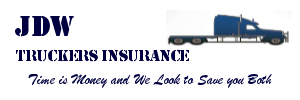General Liability Insurance for Truckers
General liability insurance is a crucial component of commercial truck insurance that provides coverage for a wide range of liability risks beyond the specific operations of your commercial trucks. It is designed to protect your business from financial losses resulting from third-party claims of bodily injury, property damage, and other liabilities that may arise in the course of your trucking operations.
Key Points about General Liability Insurance for Commercial Trucking:
- Coverage Scope: General liability insurance typically covers the following areas:
- Bodily Injury Liability: This coverage protects your business if someone is injured due to your trucking operations. It can help pay for medical expenses, legal fees, and settlement costs if you’re found liable.
- Property Damage Liability: Property damage liability coverage provides protection in case your trucking operations cause damage to someone else’s property, such as vehicles, buildings, or other structures.
- Personal Injury: General liability insurance may cover personal injury claims, which include non-physical harm such as libel, slander, or false advertising.
- Advertising Injury: This aspect of coverage can protect your business from claims related to advertising practices, such as copyright infringement, defamation, or misleading advertising.
- Medical Payments: Some general liability policies include coverage for medical payments, which can help with immediate medical expenses for individuals injured on your premises or due to your business operations.
- Complementary Coverage: While general liability insurance provides broad coverage for various liability risks, it should be complemented with other insurance types specific to commercial trucking, such as auto liability insurance, cargo insurance, and physical damage coverage. Each of these policies addresses specific risks associated with commercial truck operations.
- Contractual Requirements: Many business contracts, including those in the trucking industry, may require you to have general liability insurance. Your clients, partners, or shippers may insist on proof of this coverage before engaging in business with you.
- Limits and Deductibles: General liability insurance policies come with coverage limits and deductibles. Coverage limits represent the maximum amount the insurance company will pay in the event of a covered claim, while the deductible is the amount you must pay out of pocket before your coverage applies.
- Tailored Policies: Insurance providers often offer tailored general liability insurance policies for commercial trucking businesses to address the specific risks and needs of the industry. These policies can be adjusted to match the size and scope of your operations.
- Cost Factors: The cost of general liability insurance for commercial trucking can vary based on factors such as the size of your business, the nature of your operations, your claims history, and the coverage limits you choose. Working with an experienced insurance agent can help you find coverage that fits your budget while providing adequate protection.
- Legal Requirements: While general liability insurance is essential for protecting your business, it may not be legally mandated for trucking operations as auto liability insurance is. Auto liability insurance specifically covers liability related to accidents involving your commercial vehicles. However, general liability insurance is still highly recommended to protect against non-vehicle-related liability risks.
In summary, general liability insurance for commercial trucking is a comprehensive coverage that safeguards your business from a wide range of liability risks beyond the scope of your commercial vehicle operations. It is an essential component of your overall risk management strategy and is often required by contracts and partners in the trucking industry. To ensure that you have the right coverage and limits to protect your trucking business, consult with an experienced insurance professional who understands the specific needs of the industry.
